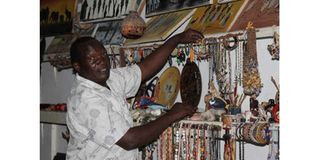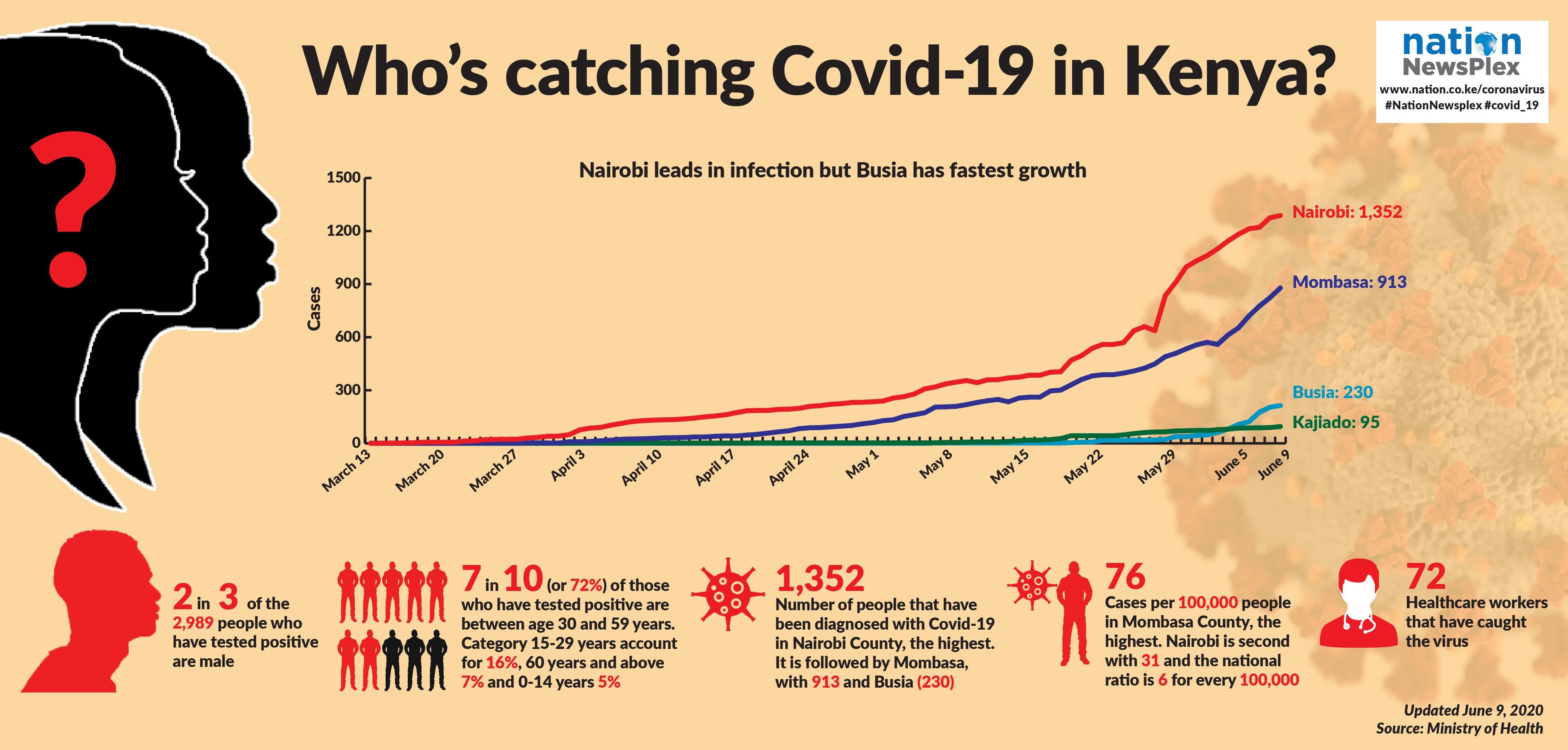Curio dealers struggle to make ends meet

Sixty-year-old Francis Kimatu waits hopefully for tourists at his curio shop at Shanzu, Mombasa County on September 3, 2015. He had to send his wife and children upcountry and get himself a single-roomed house for which he pays Sh1,500 rent. PHOTO | WACHIRA MWANGI
What you need to know:
- Mr Kimatu who has been in the curio trade for 25 years, says he has never faced worse moments in business than in the past two years.
- When the Nation team visited the curio shop of another dealer at Shanzu, Joshua Sendora, we found him busy reading a Bible as customers from Europe were no more.
- Kongowea Market Central Committee Chairman Ali Mtsumi says the more than 10,000 traders at the giant wholesale market lost about 60 per cent of their sales during the low season period.
Two years ago, Mr Francis Kimatu, who owned a curio shop with five employees in Shanzu, Mombasa County, closed it down due to a lack of tourist buyers.
As bills piled up, the 60-year-old curio dealer decided to take his family to his rural home in Machakos.
Mr Kimatu who has been in the curio trade for 25 years, says he has never faced worse moments in business than in the past two years.
I am reading a Bible to seek divine intervention. Maybe our cries will reach our Almighty God and persuade the European tourists come back and rescue us from the harsh economic realities,” he said.
“During the peak period of 2011, I used to make about Sh50,000 a day, as many tourists from Europe used to buy our curios like hotcakes,” he said.
“We used to depend on international holidaymakers from Germany, Switzerland, the United Kingdom, Italy and France as they are the major buyers of curios as souvenirs,” he says.
As the number of international tourists, dwindled Mr Kimatu could spend several months without selling a single curio, making earning living hard for him.
“The economic situation was so bad that I decided to send my workers home as I had no money to pay their wages,” he says.
But things got worse and soon after the father of five could not pay his house rent of Sh5,000 per month or feed his family. “I abandoned the house for a single room which costs me a rent of Sh1,500 per month,” says.
As things got worse, he says, he resolved to take his family to Machakos as he couldn’t afford to stay with them in Mombasa.
Mr Kimatu returned to Mombasa in July with hopes that the sector would recover.
Fortunately, he does not need to pay rent for the curio shop since he built it himself years ago when the industry used to do well. He re-opened his shop which was full of curios in July, which traditionally is a high tourist season.
“At the moment, majority of the tourists coming to Mombasa are Kenyans who are attending conferences and workshops,” he says. “Sadly, local tourists are disinterested in buying curios, leaving us languishing in poverty.”
MONTHS WITHOUT SALES
When the Nation team visited the curio shop of another dealer at Shanzu, Joshua Sendora, we found him busy reading a Bible as customers from Europe were no more.
A Shanzu taxi driver Edgerton Mazai says in a good day by then he could make Sh8,000 but in the aftermath of lack of international tourists, he now spends up to a week without a customer
“I am reading a Bible to seek divine intervention. Maybe our cries will reach our Almighty God and persuade the European tourists come back and rescue us from the harsh economic realities,” he said.
Mr Sendora, who also used to employ five workers, says he was forced to lay them off as he could no longer meet the operational costs for his business.
“During heydays, I could make between Sh20,000 and Sh50,000 a day, but since last year I can spend months without making any sales,” he says.
Mr Sendora who is also the chairman of Shanzu Curio Traders Group, said more than 1,000 curio workers at Shanzu alone have lost their livelihoods in the wake of the tourism downturn.
Of the 400 curio dealers who used to operate shops at Shanzu, he says, only 10 had remained in business. Other traders have also been adversely affected by the downturn.
Kongowea Market Central Committee Chairman Ali Mtsumi says the more than 10,000 traders at the giant wholesale market lost about 60 per cent of their sales during the low season period.
He said suppliers who used to buy vegetables and fruits from the market owed traders more than Sh30 million in unpaid bills for purchase of vegetables and fruits.
During the tourism boom, he added, traders used to buy vegetables and fruits from farmers in Nyahururu, Kakamega, Kibwezi, and Kabete among other parts of upcountry.
SALE OF LOBSTERS
Following the downturn, he said, traders had reduced the tonnage of vegetables and fruits they buy from upcountry farmers as the remaining hotels buy little foodstuffs.
“Thousands of traders at the market are now languishing in poverty as demand for vegetables and fruits has significantly dropped. Demand for beef and chicken has also plummeted robbing livestock and poultry farmers of livelihoods,” he says.
However, Mr Mtsumi said during the August school holidays, business at the market improved by 10 per cent as hotels bought lots of food to feed guests mainly from the domestic market.
A Lamu fisherman Ahmed Shaban said they used to reap a windfall from the sale of lobsters, but since tourism took a dive, their catch is going to waste.
He noted that fishermen have nowhere to sell their fish as most of the hotels in Lamu have been closed down due to lack of guests.
A Shanzu taxi driver, Edgerton Mazai, says in a good day by then he could make Sh8,000 but in the aftermath of lack of international tourists, he now spends up to a week without a customer.
He explains that when tourism was vibrant they used to make a fortune since they would take tourists to Mombasa for town tours, Haller Park and even nightclubs.




